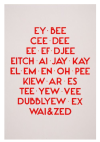You are using an out of date browser. It may not display this or other websites correctly.
You should upgrade or use an alternative browser.
You should upgrade or use an alternative browser.
SOTD : Saturday 1st January-Friday 7th January 2022.
- Thread starter Palmolive fox
- Start Date
-
- Tags
- sotd
- Messages
- 3,963
Glad to hear you are ok, all engines roaring, in spite of being positive. Must be all the excellent shave soaps, razors, and the Japanese Ladies Rockers...Thank you. So far nothing really notable. Hope it stays that way
How about ‘aloominum’? there’s another cracker. To be fair, I’m only privy to half this conversation. I presume it’s a debate between proper…oops, sorry, different ways of spelling and pronunciation.View attachment 82588
View attachment 82589
@TobyC - Now you know your ABC, next time won't you sing with me?
- Messages
- 890
She looks like she could cure all your ills......certainly more appealing than Jimmy Shand. Hope you're feeling perkier now fellaShe is my remedy
And who is Yoshi you may well ask.
View attachment 82574
And one superb guitarist while at it. What a lady
- Messages
- 5,609
- Location
- Cat-Pig Swamp
So, you speak English like the Russians and the Chinese.
No - they speak English like us. The international language of business!
The screen grabs you posted earlier raise an interesting point though. Online dictionaries are predominantly American English. The Oxford English Dictionary is hidden behind a paywall. I see American English much more frequently now in work communications.
The screen grabs you posted earlier raise an interesting point though. Online dictionaries are predominantly American English. The Oxford English Dictionary is hidden behind a paywall. I see American English much more frequently now in work communications.
- Messages
- 89

Afternoon, Gents! Today's (Head) Shave.
Merkur Slant, Nacet #forgot, Arko Stick
Yaqi Jumbo & Alum to finish.
Stick applied straight to wet stubble.
Soap worked in & up with wetted brush.
Multiple passes with the grain.
Cold water rinse, polished off w/alum.
Blade palm stropped & edges oiled;
still good for couple more shaves!
Result? ✌
Sorry Bill, my post in this thread probably brought you to the wrong week.View attachment 82609
Afternoon, Gents! Today's (Head) Shave.
Merkur Slant, Nacet #forgot, Arko Stick
Yaqi Jumbo & Alum to finish.
Stick applied straight to wet stubble.
Soap worked in & up with wetted brush.
Multiple passes with the grain.
Cold water rinse, polished off w/alum.
Blade palm stropped & edges oiled;
still good for couple more shaves!
Result? ✌
- Messages
- 5,609
- Location
- Cat-Pig Swamp
No!
That word is the same in both versions of English.
- Messages
- 5,609
- Location
- Cat-Pig Swamp
There's only one true English language, the Brits just need to learn it! 
Thank you my friend. I’m confident Wednesday will be a positive day for you. Don’t ask why, I just know it will be. Regards BrianTo follow up on last night's SOTD this wonderful shave comes to you with the theme 'Staying positive about being positive'
View attachment 82557
A positive razor - Tatara Nodachi
Double negative blade - Polsilver Lodz
A big + - Wee Whiskey Barrel
A+++ - Signature Soaps Londinium
Vibras positivas - Signature Soaps Londinium splash
Day two of living with a positive result and feeling fine and dandy so far. May it remain this way.
I have felt worse in my life. Malaria not being memorable fun and norovirus which is nature's joke on how to empty the body of fluids via every orifice and pore. A time of indecision as to what end of your body needs the toilet the most.
Thank you for your sympathy Shirley. You sick puppy.
Right illnesses and sickness aside, after all who cares about such things? What about the shave?
Choose two of my shaving personalities of the year award winners (and rightfully so) and throw in a contender for next years most obscure awards and voila! Perfection in every sense and wonderfully smooth from the bottom of my neck to somewhere around my ears. Via chin and cheeks.
No, no I said 'Cheeks'
Not only that but my sense of smell appears to be still with me with the lovely lime of the Londinium. And when I come to think about it the my sense of taste as well. Not recommended to eat shaving soap though children.
The Tatara never fails to impress. Am I being swayed away from the single side? Chris, I am your razor.
If being positive involves being confined to the cellar with my guitar and watching shite on the TV then I'm up for this.
Have a most fantastic of Weekends you lovely folk and may your results be better than mine.
Have some more Aldious if only to keep you smiling. Yoshi does that
- Messages
- 5,609
- Location
- Cat-Pig Swamp
@TobyC : Nice try - it's spelt 'realised'
-ise, -ize (-isation, -ization)[edit]
See also: Oxford spellingOrigin and recommendations[edit]
The -ize spelling is often incorrectly seen as an Americanism in Britain. It has been in use since the 15th century, predating -ise by over a century.[51] -ize comes directly from Greek -ιζειν -izein and Latin -izāre, while -ise comes via French -iser.[52][53] The Oxford English Dictionary (OED) recommends -ize and lists the -ise form as an alternative.[53]Publications by Oxford University Press (OUP)—such as Henry Watson Fowler's A Dictionary of Modern English Usage, Hart's Rules,[54] and The Oxford Guide to English Usage[55]—also recommend -ize. However, Robert Allan's Pocket Fowler's Modern English Usage considers either spelling to be acceptable anywhere but the US.[56] Also, Oxford University itself does not agree with the OUP and advocates -ise instead of -ize in its staff style guide.[57]
Usage[edit]
American spelling avoids -ise endings in words like organize, realize and recognize.[58]British spelling mostly uses -ise (organise, realise, recognise), though -ize is sometimes used.[58] The ratio between -ise and -ize stood at 3:2 in the British National Corpus up to 2002.[59] The spelling -ise is more commonly used in UK mass media and newspapers,[58] including The Times (which switched conventions in 1992),[60] The Daily Telegraph, The Economist and the BBC. The Government of the United Kingdom additionally uses -ise, stating "do not use Americanisms" justifying that the spelling "is often seen as such".[61] The -ize form is known as Oxford spelling and is used in publications of the Oxford University Press, most notably the Oxford English Dictionary, and of other academic publishers[62] such as Nature, the Biochemical Journal and The Times Literary Supplement. It can be identified using the IETF language tag en-GB-oxendict (or, historically, by en-GB-oed).[63]
In Canada, the -ize ending is more common, whereas in Ireland, India, Australia, and New Zealand,[64] -ise spellings strongly prevail: the -ise form is preferred in Australian English at a ratio of about 3:1 according to the Macquarie Dictionary.
The same applies to derivatives and inflections such as colonisation/colonization, or modernisation/modernization.
Worldwide, -ize endings prevail in scientific writing and are commonly used by many international organizations, such as the United Nations Organizations (such as the World Health Organization and the International Civil Aviation Organization) and the International Organization for Standardization (but not by the Organisation for Economic Co-operation and Development). The European Union's style guides require the usage of -ise.[65] Proofreaders at the EU's Publications Office ensure consistent spelling in official publications such as the Official Journal of the European Union (where legislation and other official documents are published), but the -ize spelling may be found in other documents.
Exceptions[edit]
Some verbs ending in -ize or -ise do not come from Greek -ιζειν, and their endings are therefore not interchangeable:- Some words take only the -z- form worldwide, for example capsize, seize (except in the legal phrases to be seised of or to stand seised to), size and prize (only in the sense of winning, not as forcing open with a lever). These, however, do not contain the suffix -ize.
- Others take only -s- worldwide: advertise, advise, arise, chastise, circumcise, comprise, compromise, demise, despise, devise, disguise, excise, exercise, franchise, guise, improvise, incise, reprise, revise, rise, supervise, surmise, surprise, televise, and wise. Some of these do not contain the suffix -ise, but some do.
- One special case is the verb to prise (meaning "to force" or "to lever"), which is spelled prize in the US[66] and prise everywhere else,[67] including Canada,[12] although in North American English it is almost always replaced by pry, a back-formation from or alteration of prise, to avoid confusion with the more common meaning of the word "prize".[12] A topsail schooner built in Australia in 1829 was called Enterprize, whereas there have been US ships and spacecraft named "Enterprise".
-yse, -yze[edit]
The ending -yse is British and -yze is American. Thus, in British English analyse, catalyse, hydrolyse and paralyse, but in American English analyze, catalyze, hydrolyze and paralyze.Analyse was the more common spelling in 17th- and 18th-century English. Some dictionaries of the time however preferred analyze, such as John Kersey's of 1702, Nathan Bailey's of 1721 and Samuel Johnson's of 1755. In Canada, -yze is preferred, but -yse is also very common. In South Africa, Australia and New Zealand, -yse is the prevailing form.
English verbs ending in either -lyse or -lyze are not similar to the original Greek verb, which is λύω lýo ("I release"). Instead, they come from the noun form λύσις lysis, with the -ise or -ize suffix. For example, analyse comes from French analyser, formed by haplology from the French analysiser,[69] which would be spelled analysise or analysize in English.
Hart's Rules for Compositors and Readers at the University Press, Oxford states: "In verbs such as analyse, catalyse, paralyse, -lys- is part of the Greek stem (corresponding to the element -lusis) and not a suffix like -ize. The spelling -yze is therefore etymologically incorrect, and must not be used, unless American printing style is being followed."[54]
Last edited:
- Messages
- 1,996
There's only one true English language, the Brits just need to learn it!
There is only one true accepted language, and that is scottish.
I don't care if you can't understand it or it sounds foreign/wrong, but scottish language is right.
- Messages
- 5,609
- Location
- Cat-Pig Swamp
I'm sorry, can you say that slower, your accent is so strong I couldn't understand it?There is only one true accepted language, and that is scottish.
I don't care if you can't understand it or it sounds foreign/wrong, but scottish language is right.
- Messages
- 5,609
- Location
- Cat-Pig Swamp
You are, in fact, wrong.@TobyC : Nice try - it's spelt 'realised'



